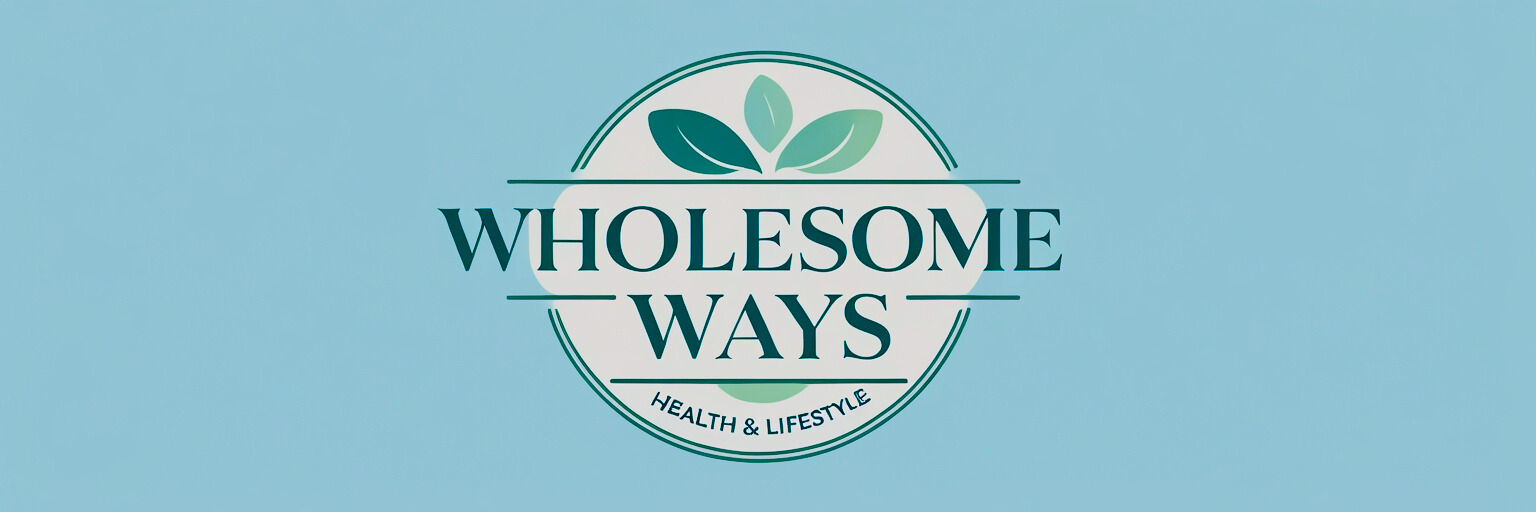Now Reading: The Art of Saying No: Reclaim Your Time & Boost Wellbeing in 2025
-
01
The Art of Saying No: Reclaim Your Time & Boost Wellbeing in 2025
The Art of Saying No: Reclaim Your Time & Boost Wellbeing in 2025

In 2025, the lines between work and life have blurred more than ever. The rise of personalized AI assistants, while promising increased efficiency, has inadvertently fueled a culture of hyper-productivity and constant availability. But here’s a stark truth: 78% of remote workers report feeling pressured to be ‘always on,’ directly impacting their mental wellbeing. This constant demand for our time and energy necessitates a crucial skill, one often overlooked: The Art of Saying No: Setting Boundaries for Mental Wellbeing. It’s not about being difficult; it’s about self-preservation.

[IMAGE: Overwhelmed person juggling tasks [FEATURED_IMAGE]]
The ‘Yes’ Trap: Why We Struggle to Say No
Why is saying ‘no’ so difficult? For many, it stems from deeply ingrained societal expectations. We’re conditioned to be agreeable, helpful, and eager to please. This can lead to a ‘yes’ spiral, where we overcommit ourselves, leading to burnout and resentment. Think of it like a slowly inflating balloon: each ‘yes’ adds more air, stretching you thinner and thinner until, eventually, you pop.
Another factor is the fear of missing out (FOMO), amplified by constant social media updates showcasing others’ seemingly perfect lives. We worry that saying ‘no’ will exclude us from opportunities or damage relationships. But consider this: a carefully chosen ‘no’ can protect your energy and allow you to say a resounding ‘yes’ to the things that truly matter.
Furthermore, the always-on culture perpetuates a false sense of urgency. Every request feels critical, every email demands immediate attention. We need to actively challenge this perception and reclaim control of our time.
In a hyper-connected world, the ability to say ‘no’ is a superpower, not a weakness.
The Perceived Consequences of ‘No’
Often, the consequences we imagine are far worse than reality. We fear disappointing others, damaging relationships, or missing out on opportunities. However, a well-articulated ‘no’ can actually build respect and trust. It demonstrates self-awareness and a commitment to your own wellbeing.
What if, instead of fearing the negative consequences, we focused on the *positive* outcomes of setting boundaries? More time for personal pursuits, improved focus at work, and a stronger sense of self-worth. The shift in perspective is transformative.

Deconstructing the ‘No’: A Toolkit for Boundary Setting
Saying ‘no’ isn’t a one-size-fits-all approach. There are various ways to decline requests while maintaining positive relationships. The key is to be assertive, respectful, and clear about your reasons.
Here are a few tools to add to your ‘no’ toolkit:
- The ‘Defer and Delegate’ Technique: Instead of a flat ‘no,’ suggest an alternative solution. ‘I’m currently at capacity, but perhaps [colleague’s name] would be a better fit for this project.’
- The ‘Time-Bound No’: Acknowledge the request but set a clear timeframe. ‘I’m unable to take on any new projects this month, but I’d be happy to discuss it in [month].’
- The ‘Prioritization No’: Explain that you need to prioritize existing commitments. ‘I appreciate the offer, but I’m currently focused on [project], and taking on anything else would compromise its success.’
- The ‘Plain and Simple No’: Sometimes, a straightforward ‘no’ is the most effective approach. ‘Thank you for the opportunity, but I’m not able to commit to this at this time.’ No explanation is always necessary.
Remember, practice makes perfect. Start with smaller requests and gradually build your confidence in saying ‘no’.

Digital Detox and the Right to Disconnect: Reclaiming Your Downtime
The digital age has blurred the boundaries between work and personal life, making it challenging to disconnect. The rise of always-on communication platforms has created a culture of constant availability, leading to burnout and decreased mental wellbeing. In response, many companies are implementing ‘Right to Disconnect’ policies, legally protecting employees’ downtime.
However, even without a formal policy, you can take proactive steps to reclaim your downtime:
- Set Boundaries with Technology: Designate specific times for checking emails and messages, and avoid work-related notifications during personal hours.
- Create a Dedicated Workspace: Having a separate workspace can help you mentally separate work from home, making it easier to disconnect at the end of the day.
- Practice Mindfulness and Meditation: Mindfulness techniques can help you become more aware of your thoughts and feelings, allowing you to better manage stress and set boundaries.
- Prioritize Self-Care: Make time for activities that you enjoy and that help you relax and recharge. This could include exercise, spending time in nature, or pursuing hobbies.
The Art of Saying No: Setting Boundaries for Mental Wellbeing extends to our digital lives. It’s about consciously choosing when and how we engage with technology, rather than allowing it to dictate our lives.
The Ripple Effect: How Saying ‘No’ Benefits Your Mental Wellbeing – and Your Career
The benefits of setting boundaries extend far beyond simply having more free time. Saying ‘no’ can significantly improve your mental wellbeing by reducing stress, increasing focus, and boosting self-esteem.
When you’re not constantly overcommitted, you have more energy to dedicate to the tasks and projects that truly matter. This leads to increased productivity and higher quality work, ultimately benefiting your career.
Furthermore, setting boundaries demonstrates self-respect and confidence, which can enhance your professional reputation. People will respect you more for knowing your limits and prioritizing your wellbeing.
Think of saying ‘no’ as an investment in yourself. It’s an investment that pays dividends in the form of improved mental health, increased productivity, and a more fulfilling life. Isn’t that worth prioritizing?
[IMAGE: Ripple effect of saying no illustration]
Beyond Self-Care: Fostering a Culture of Healthy Boundaries
While individual action is crucial, creating a workplace culture that supports healthy boundaries is equally important. Leaders should model healthy behavior by setting their own boundaries and encouraging employees to do the same.
This includes promoting open communication about workload, discouraging after-hours emails, and celebrating employees who prioritize their wellbeing.
By fostering a culture of healthy boundaries, we can create a more sustainable and fulfilling work environment for everyone.
Conclusion
The Art of Saying No: Setting Boundaries for Mental Wellbeing isn’t selfish; it’s essential. In a world demanding constant availability, mastering this skill is crucial for reclaiming your time, protecting your mental health, and ultimately, living a more fulfilling life. So, the next time you’re faced with a request, pause, reflect, and ask yourself: is this a ‘yes’ that truly aligns with my priorities and values? If not, embrace the power of ‘no’ and reclaim your time.
Frequently Asked Questions
How can I tactfully decline a request from my boss without damaging my career?
Frame your ‘no’ in terms of prioritization and commitment to existing projects. Explain that you want to ensure you can deliver high-quality work on your current tasks and that taking on additional responsibilities would compromise that. Offer alternative solutions or suggest delegating the task to another team member.
What if I feel guilty saying ‘no’ to a friend or family member?
Acknowledge their request and express your empathy. Explain why you’re unable to help at this time, but offer alternative forms of support or suggest resources they might find helpful. Remember, it’s okay to prioritize your own wellbeing, even when it means disappointing loved ones.
Stay Informed With the Latest & Most Important News
Previous Post
Next Post
-
 01Simple Tips to Improve Mental Health and Well-Being
01Simple Tips to Improve Mental Health and Well-Being -
 02How Proper Hydration Can Transform Your Physical Health
02How Proper Hydration Can Transform Your Physical Health -
 03How Physical Exercise Positively Impacts Mental Health Stability
03How Physical Exercise Positively Impacts Mental Health Stability -
 04Effective Home Remedies to Soothe Common Cold Symptoms
04Effective Home Remedies to Soothe Common Cold Symptoms -
 05Understanding the Importance of Regular Health Check-Ups for All
05Understanding the Importance of Regular Health Check-Ups for All -
 06Managing Seasonal Allergies with Natural and Medical Solutions
06Managing Seasonal Allergies with Natural and Medical Solutions -
 07The Role of Nutrition in Strengthening Your Immune System
07The Role of Nutrition in Strengthening Your Immune System































